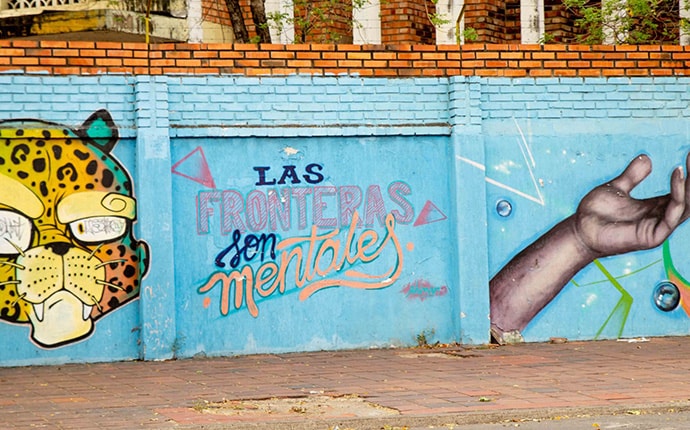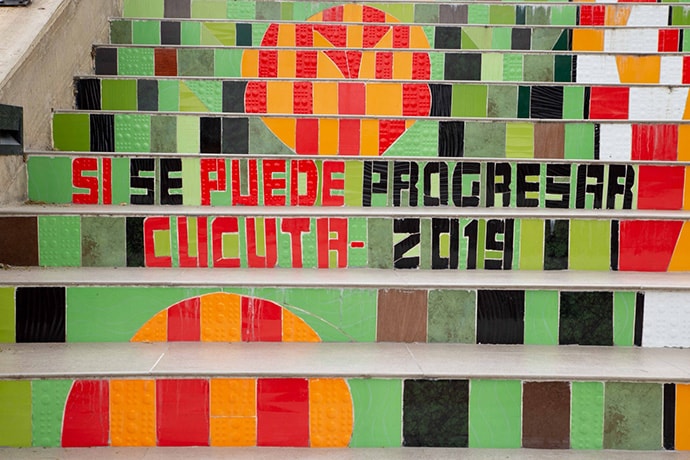Our creative use of the law in Colombia protected the sexual and reproductive health of women in the department of Norte de Santander, one of Colombia’s regions that borders Venezuela.
By: Valeria Pedraza| Staff Attorney at Women’s Link Worldwide
Reposted with permission from Women’s Link Worldwide, with adjustments by the author.

“Borders are in the mind” – Photo: Laura Martínez, Women’s Link Worldwide
At Women’s Link, we have been using the law creatively to achieve justice for women and girls for more than 20 years. We are convinced that it is a valuable tool to bring them closer to justice, to a life free of violence and discrimination, and to full autonomy over their bodies and decisions.
How do we do it? Our first step is always to thoroughly study the contexts in which we want to work. We then identify what legal precedents, models and tools are available and how we might use them with a gender perspective to advance women’s rights.
An example of this way of working is an “acción popular” that we filed in September 2020 in Colombia. This legal mechanism enables the protection of collective rights and interests when they have been violated or there is a risk that they will be violated.
Our team had been researching for quite some time the legal avenues that we could use to eliminate barriers to access to sexual and reproductive rights in the regions of Colombia. In studying the “acción popular”, we saw that this mechanism allowed us to protect the sexual and reproductive rights of a broad group of women and to promote their interpretation as collective rights. This was our opportunity to innovate and use the law in a creative way, since it is uncommon for this type of suit to be used to demand the protection of sexual and reproductive rights.
The objective of our “acción popular” was to make visible and overcome the barriers that many women face in accessing sexual and reproductive health services in Norte de Santander, one of Colombia’s departments that borders Venezuela. In this department, there are not enough service providers, supplies, or trained medical personnel to guarantee voluntary termination of pregnancy, and these issues intensified during the COVID-19 pandemic. Additionally, we know that many migrant women suffer discrimination in health centers because of their nationality and migratory status, including pregnant women who require immediate attention. Thus, we focused on the collective right of women to have effective and timely access to sexual and reproductive health services, especially abortion and maternal and child health care for migrant women from Venezuela.
The strategy yielded excellent results: in November 2021, a court in Cúcuta, the capital of Norte de Santander, ordered different health authorities to take immediate measures to protect the sexual and reproductive health of women in the department of Norte de Santander, including access to voluntary termination of pregnancy.

“Progress is possible. Cúcuta- 2019” – Photo: Laura Martínez, Women’s Link Worldwide
In addition, the decision sends a very clear message about the need to address abortion as a public health issue and for state authorities to take effective and structural measures to ensure that all women in the region can access sexual and reproductive health services.
Cases like this one show us the importance of always being creative and bold in everything we do, looking for different ways to use justice systems to bring women and girls closer to their rights. Addressing the need for access to maternal services, these orders place special emphasis on the unique inequalities women face, and specifically migrant women in these contexts. In seeking to bridge the gap between the rights conferred to women and men, the “acción popular” reduces inequalities between them and helps advance SDG10 within Colombia.
This innovation is possible thanks to the support of our donors and the organizations and activists with whom we work in partnership. If you would also like to support us, you can find out how here.